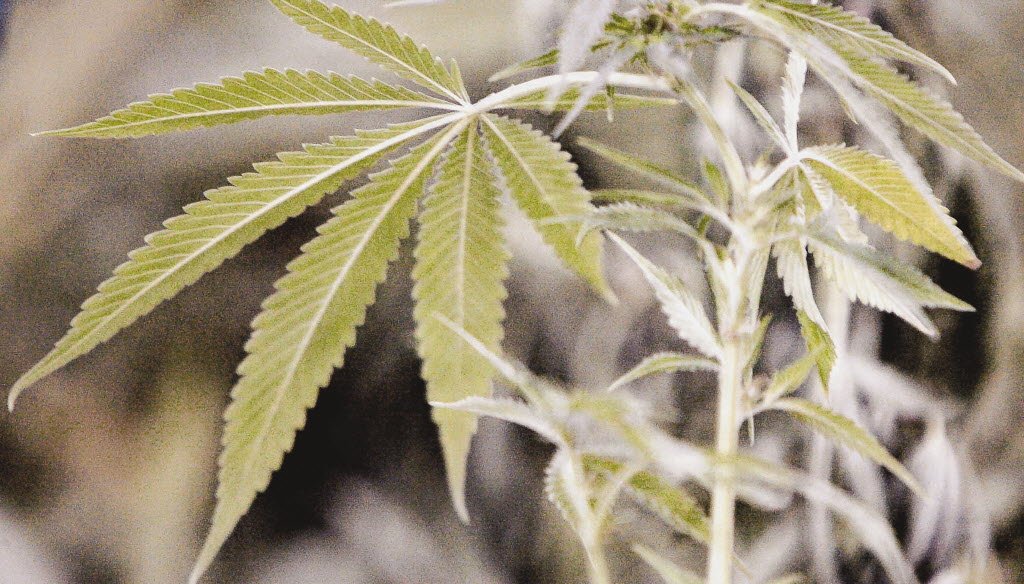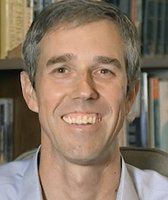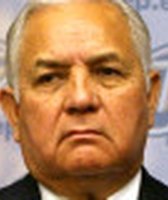Get PolitiFact in your inbox.

Where do the Republican presidential candidates stand on marijuana? We wondered (Associated Press photo).
Colorado voters in 2012 resoundingly approved a proposal legalizing recreational use of marijuana by adults as did voters in Washington state. Two years later, voters in Oregon, Alaska and Washington, D.C. embraced similar changes.
Heading into the Republican presidential debate airing from Boulder, Colo., on CNBC, we wondered where the candidates stand on such moves.
For this rundown, we relied on a compilation of candidate positions put together by the Marijuana Policy Project, which says in its vision statement it envisions "a nation where marijuana is legally regulated similarly to alcohol, marijuana education is honest and realistic, and treatment for problem marijuana users is non-coercive and geared toward reducing harm." But we also verified each quotation from its originating source.
Let's smoke 'em out.
Rand Paul, the Kentucky senator, "has consistently supported states’ rights to establish their own marijuana policies, and he has been a vocal supporter of decriminalizing or reducing criminal penalties for those arrested for marijuana possession." Paul also is a sponsor of legislation to "allow states to set their own policies regarding the legalization of medical marijuana without interference from the federal government," the project says, and has spoken out for decriminalizing possession of marijuana.
Paul said in December: "If your kid was caught selling marijuana or growing enough that it’s a felony conviction, they could be in jail for an extended period of time, they also lose their ability to be employable. So I want to change all of that. I want to lessen the criminal penalties on it."
Then again, Paul wasn’t calling for marijuana to be completely decriminalized, according to a news story posted by WHAS-TV, Channel 11, in Louisville. Paul told the station: "I think (drugs) are not a good idea. Even people who say marijuana is no big deal. No, I think marijuana is a problem for our kids and I think it's a mistake for kids to be smoking even marijuana. Even though it may not kill you I don't think it's good for you. It's not good for studies, it's not good for showing up for work."
Donald Trump, the project says, favored legalizing all drugs in 1990. But Trump responded to a June question about respecting states’ rights by saying: "If they vote for it, they vote for it. But, you know, they’ve got a lot of problems going on in Colorado right now. Big problems. But I think, medical marijuana, 100%."
Ben Carson, the neurosurgeon in the field, told Fox News in 2014: "I think medical use of marijuana in compassionate cases certainly has been proven to be useful. But recognize that marijuana is what’s known as a gateway drug. It tends to be a starter drug for people who move onto heavier duty drugs – sometimes legal, sometimes illegal – and I don’t think this is something that we really want for our society. You know, we’re gradually just removing all the barriers to hedonistic activity and you know, it’s just, we’re changing so rapidly to a different type of society and nobody is getting a chance to discuss it because, you know, it’s taboo. It’s politically incorrect. You’re not supposed to talk about these things."
Former Florida Gov. Jeb Bush said in a February interview: "I thought (legalizing marijuana in Colorado) was a bad idea, but states ought to have that right to do it. I would have voted ‘no’ if I was in Colorado."
Some candidates say the federal government should crack down in states that have legalized adult possession.
New Jersey Gov. Chris Christie, a former federal prosecutor, said in New Hampshire in July: ""If you’re getting high in Colorado today, enjoy it. As of January 2017, I will enforce the federal laws. That’s lawlessness. If you want to change the marijuana laws, go ahead and change the national marijuana laws."
Florida Sen. Marco Rubio said in August: "I believe that the federal government needs to enforce federal law. … I’ve said that I’m open to medical uses of marijuana … if in fact it goes through the FDA process … I’m not in favor of legalizing marijuana. I’m not, and never have been."
Similarly, former Sen. Rick Santorum said in April that "Colorado is violating the federal law. And if we have controlled substances, they’re controlled substances for a reason. The federal law is there for a reason, and the states shouldn’t have the option to violate federal law. As Abraham Lincoln said, you know, states don’t have the right to wrong."
Other hopefuls say let the states experiment.
Former New York Gov. George Pataki said in 2014: "I am not in favor of legalizing marijuana, but having said that I am a great believer that states are the laboratory of democracy." He added: "Let’s see what happens" in Colorado.
Texan Ted Cruz, the U.S. senator, acknowledged the votes in Colorado and Washington state. He went on to tell Hugh Hewitt: "I think it is appropriate for the federal government to recognize that the citizens of those states have made that decision. One of the benefits of it … is we can now watch and see what happens in Colorado and Washington State." Cruz also said "when it comes to a question of legalizing marijuana, I don’t support legalizing marijuana. If it were on the ballot in the state of Texas, I would vote no. But I also believe that’s a legitimate question for the states to make a determination."
Similarly, Carly Fiorina said in June that she opposes legalizing marijuana for recreational use, but respects each state’s right to consider the issue. "I don't support legalized marijuana for a whole host of reasons, including the fact that this is a very complex chemical substance, and when we tell young people it is just like drinking a beer, we are not telling them the truth," Fiorina said.
Mike Huckabee, the former Arkansas governor, made a similar point this month: "If your doctor prescribes certain uses of it, then I’m open to that. But this idea of recreational marijuana — well let’s let Colorado have at it for a few years and let’s see how that works out for them. … The best way to determine whether this is good public policy is to do what the founders envisioned, and that’s let states become laboratories of democracy." Huckabee added he doesn’t want this country to look like Amsterdam.
Some candidates stress support solely for medicinal uses.
South Carolina Sen. Lindsey Graham said in 2014: "I’m against legalizing marijuana for recreational purposes. But when it comes to medical marijuana and" cannabidiol, also known as CBD oil, "I think politicians should embrace what makes sense. When it comes to issues like this, I don’t want to be academic in thought. This is about people. This is about families with sick children. Why should someone in my position get in the way of helping a child, if you can reasonably and logically do it?"
Louisiana Gov. Bobby Jindal said in February: "I don’t think anyone should be legalizing marijuana, I think that’s a mistake. When it comes to the issue of medical marijuana, I’ve said as long as it’s done under tight restrictions, I can be okay with that."
Ohio Gov. John Kasich may still be resolving his position. Asked about states that have adopted laws making marijuana legal for adults, Kasich said in April: "The people in those states have voted that way. The federal government has decided to kind of look the other way. I feel very strongly in my state, I’m going to oppose, and they’re going to put something on the ballot to legalize drugs. I’m totally opposed to it, because it is a scourge in this country. Now I would have to give it thought as to, I probably would not from the standpoint that the states have gone forward to prove that. I haven’t thought about this. I’d have to give it a little thought. … In my state and across this country, if I happened to be president, I would lead a significant campaign down at the grassroots level to stomp these drugs out of our country."











































